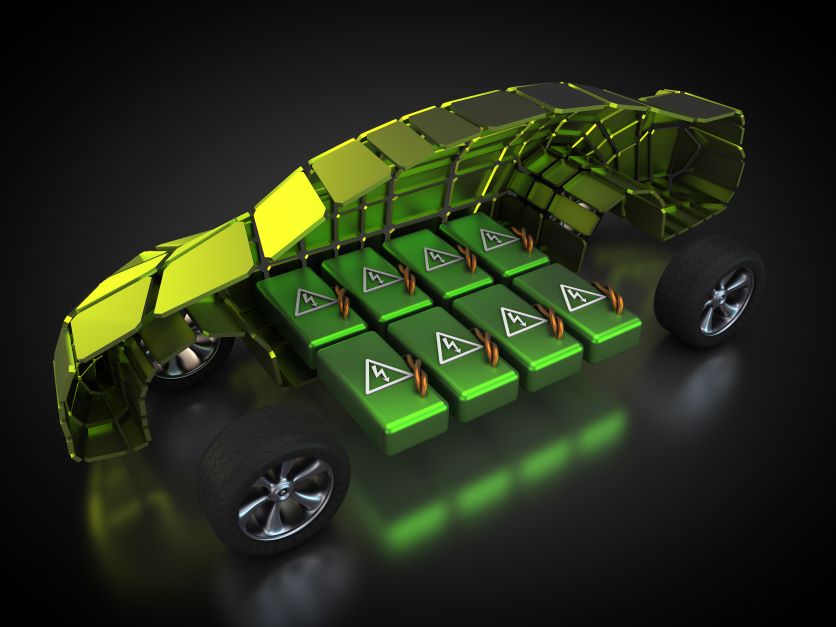Global energy and environmental conservation are hot topics regarding climate change. News about advancements in technology that lead to renewable energy generation are everywhere. Batteries, for electric vehicles (EVs) in particular, are a critical component to enabling renewable energy due to the need to store generated energy for use when it is needed. Adoption of EVs in the mass consumer market is essential to reducing greenhouse emissions, yet many people are reluctant to switch from gas-powered cars for two main reasons: high cost and limited mileage on a single charge. Both of these factors are intimately linked to the battery.
Although traditional lithium ion batteries have made significant progress in recent years with charge-up and discharge (lifetime) for small household devices, they have clear limitations in EVs, where operating conditions are demanding, such as high temperatures and frequent acceleration/deceleration power requirements. Current EV batteries only last a few hundred miles before a recharge is needed. In addition, these batteries contain liquid electrolytes that can burst into flames during a collision. These factors, coupled with associated high purchase prices, have prevented consumers from fully embracing EVs, which currently constitute only 3% of car sales in the US. California state regulators recently approved a policy that will ban the sale of new gas-powered cars by 2035, which is a very ambitious and encouraging move. However, with driving ranges requiring a stop for a time-consuming recharge every few hours, and the average cost of a new EV at about $66,000 it means that most people will continue to be uninterested or unable to afford new EVs with current batteries.
An alternative technology involves using lithium metal batteries, which offer several important benefits over standard lithium ion batteries that are in use today for products ranging from smartphones to laptop computers. Pertaining to cars, in late 2020, QuantumScape (QS), a company that develops solid-state lithium metal batteries for EVs, announced its new technology that can potentially outperform lithium ion batteries at lower cost. Compared to standard lithium ion batteries in use, QS’s product under development demonstrated an 80% longer distance range and a 200% faster charging time, while retaining an average of 90% of full charge after 1000 charge/discharge cycles, versus 80% for current batteries. The electrolyte used is a non-combustible solid and should be much safer. In fact, QS’s technology is so impressive that Volkswagen plans to use these batteries in their EVs starting in 2025. This novel technology could spark large-scale consumer conversion to emission-free vehicles, which is both inspiring and exciting.

